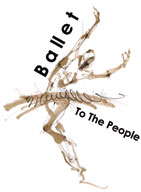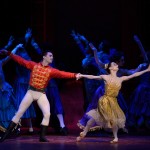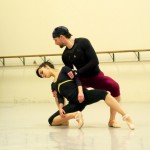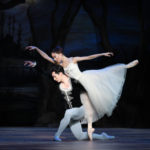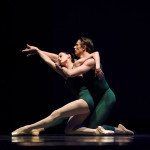Proving once again that great dance flourishes beyond the East and West coasts, Dorian Gray materialized at the Pabst Theater in Milwaukee in February.
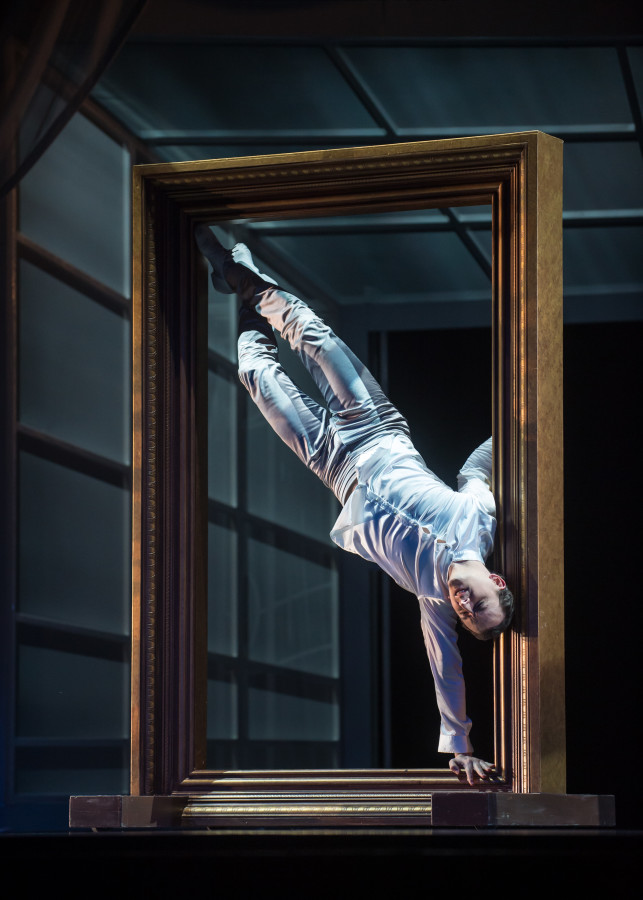
Patrick Howell as the title character in Michael Pink’s Dorian Gray for Milwaukee Ballet (Photo: Mark Frohna)
Michael Pink’s imaginative, at times mind-blowing retelling of the Oscar Wilde tale for Milwaukee Ballet reminds us that a centuries-old art form – codified by a frivolous and despotic elite, many of whom met their fate at the guillotine – remains a potent language in which to tell modern stories, communicate timeless truths, and challenge stale thinking. The stringent demands placed on the ballet body, the ascetic practice required to chisel that body, make it singularly suited to telling a tale that brims with fleshly pleasures and pain, that is obsessed with youthfulness and evocative of fluid gender identities.
Enveloped in the opulence of the Pabst, with plumes of smoke from an opium pipe wafting up to the gilded statue of Apollo atop the proscenium arch, marvelously lit by David Grill (the man responsible for illuminating Beyoncé and her brigade of Panther-ettes just a week ago at the gladiatorial contest known as the Super Bowl), and splendidly framed by Todd Edward Ivins’ spare, fluid set, Wilde’s kinky, indelible characters are given new life – and a new humanity – by an ensemble of beautiful and fearless dancer-actors.
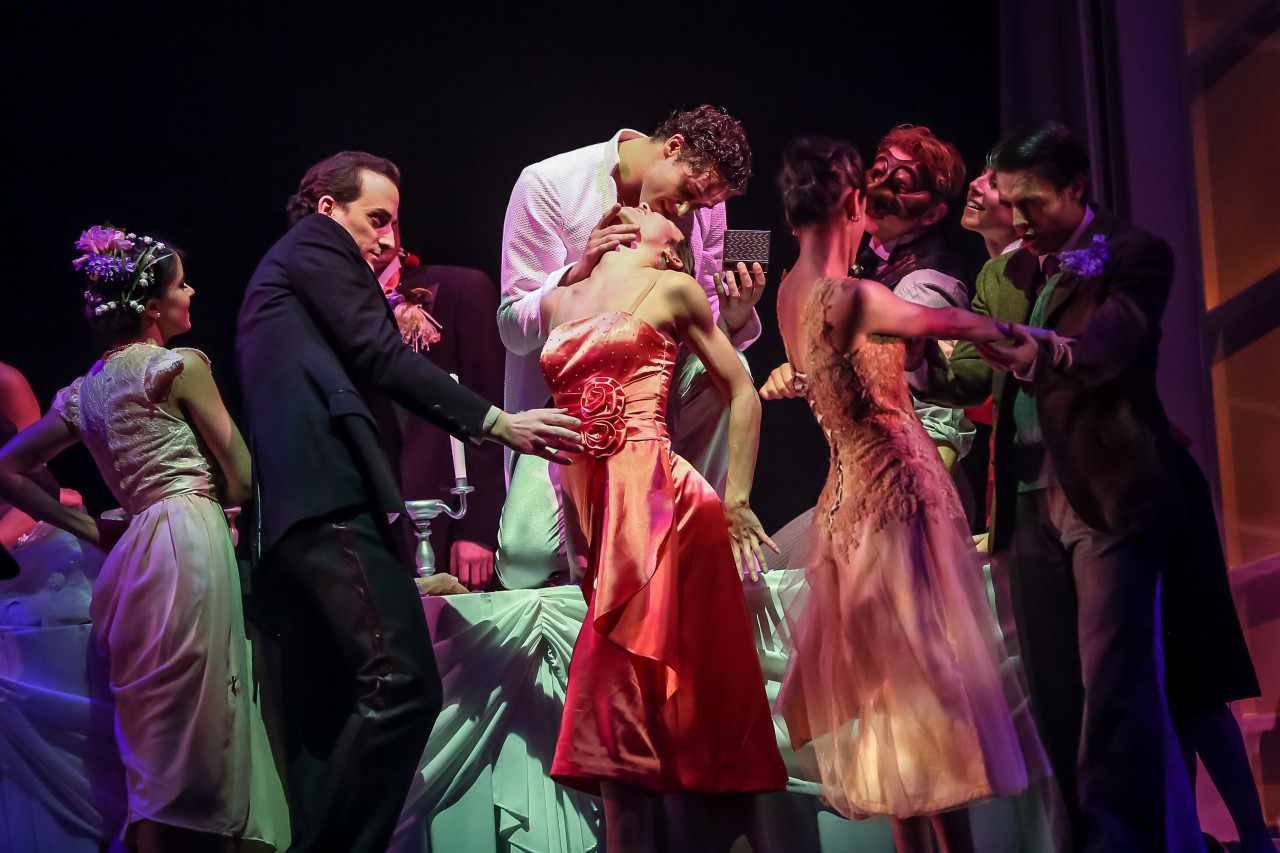
Timothy O’Donnell (center, in white) and Milwaukee Ballet dancers in Dorian Gray (Photo: Nathaniel Davauer)
Philip Feeney’s audacious score, written for a chamber orchestra of 10, quarterbacked by Pasquale Laurino, was every bit as hair-raising as the hijinks onstage. The instruments – including the electronic wizardry that tossed all manner of industrial sound into the works – not only underscore the action onstage and punctuate Lord Henry’s barbed witticisms (“I like men who have a future and women who have a past”) but often seem to enter into their own vivid dialogue with the characters and with each other – negotiating, protesting, brawling, flirting, forewarning.
– Click here to read our full review in the Huffington Post. –
